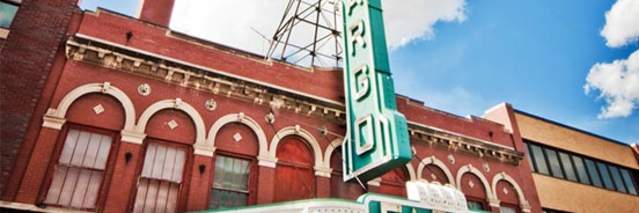Fargo's Future Convention Center
Fargo Convention Center Project Committee
An appointed committee will create and manage a Request for Proposal (RFP) process for selecting a Convention Center project in the City of Fargo. Funding for that project and the use of the RFP process to select it were approved by Fargo voters in November 2024.
Committee Members:
Mallari Ackerman | Visit Fargo-Moorhead
Katlyn Balstad | SE Education Cooperative
Shannon Full | The Chamber of FMWF
Clare Hughes | Clubhouse Inn & Suites &
Visit FM Board Vice Chair
Charley Johnson | Visit Fargo-Moorhead
Denise Kolpack | City Commissioner
Kent Kolstad | LiveWire
Tim Mahoney | City of Fargo Mayor
Emma McIntyre | Folkways
Dave Piepkorn | City Commissioner
Joe Raso | Greater Fargo-Moorhead EDC
Taylor Snelling | Mezzaluna
John Strand | City Commissioner
Michelle Turnberg | City Commissioner
Meetings
Back to Top of ListAgendas
The Convention Center Project Committee will be meeting weekly on Fridays at 1 p.m. at City Hall. All meetings will be broadcast live on TVFargo.com per the Open Meeting Laws and can be found on YouTube following.
Resources & Documents
Back to Top of ListConvention Center RFP
Convention Center Market Study
Visit Fargo-Moorhead engaged HVS Convention, Sports & Entertainment Facilities Consulting (“HVS CSE”) to assess the development of a convention center in Fargo. View the full summary below:
Convention Center Financial Analysis
Baker Tilly has provided a financial analysis on what to expect for project funding.
Regional Convention Center Info & Floorplans:
| Regional Convention Center | Space Details |
|---|---|
| Bismarck Event Center |
100,000 square foot flexible exhibit hall |
| Box Elder Events Center - Rapid City, SD |
22,240 square foot ballroom (dividable) |
| Iowa Events Center - Des Moines, IA |
150,000 square feet of continuous meeting space |
| Grand River Convention Center - Dubuque, IA |
30,000 square foot flexible exhibit hall |
| Duluth Entertainment Convention Center |
120,000 square foot exhibit space |
| Alerus Center - Grand Forks, ND |
100,000 square foot arena (dividable) |
| Mayo Clinic Health System Event Center - Mankato, MN |
50,000 square foot flexible exhibit space |
| Mayo Civic Center - Rochester, MN |
25,200 square foot flexible exhibit space |
| Sioux Falls Convention Center |
50,000 square foot ballroom & exhibit halls (dividable) |
| River's Edge Convention Center - St. Cloud, MN |
60,000 square foot flexible exhibit space |
Local Event Venues:
| Local Events Center |
Space Details |
|---|---|
| Avalon Events Center |
15,350 square feet total |
| Delta Hotels by Marriott |
15,000 square foot ballroom (dividable) |
| FARGODOME |
80,000 square foot arena floor |
| Hilton Garden Inn |
10,000 square foot ballroom |
| Holiday Inn |
11,000 square foot ballroom (dividable) |
Lost business due to lack of space:
Over the years, Visit Fargo-Moorhead has collected a list of lost business because of the lack of traditional meeting space.
Unable to Accommodate:
| Convention | Attendees | Potential Direct Visitor Spending |
|---|---|---|
| Western Interstate Child Support Enforcement Council Annual Training | 550 Attendees | Approximately $970,000 |
| Blue Cross Blue Shield Association | 1,500 Attendees | |
| ND United | 5,000 Attendees | |
| Williston Basin Petroleum Conference | 5,000 Attendees | Approximately $1.6 million |
| YWCA of the USA | 5,000 Attendees |
Conventions who have outgrown Fargo:
| Convention | Attendees | Requirements |
|---|---|---|
| Education Theatre Association | 2,000 Attendees | |
| ND Grocers Association Annual Meeting | 300 Attendees |
12,000 square feet of exhibit space |
| ND Long-Term Care Spring Conference | 900 Attendees | |
| ND Safety Council | 1,300 Attendees | |
| Tri-State Aerial Applicators | 500 Attendees |
Conventions we could lose without more space:
| Convention | Attendees | Direct Visitor Spending |
|---|---|---|
| ND Long-Term Care Fall Conference | 500 Attendees | Approximately $275,000 |
| American Traffic Safety Services Association | 500 Attendees | Approximately $325,000 |
| NDGOP | 2,000 Attendees | Approximately $300,000 |
| Jehovah's Witnesses | 4,600 Attendees | Approximately $760,000 |
| ND Petroleum Council | 600 Attendees | Approximately $357,000 |
Frequently Asked Questions
Back to Top of List
Why does Fargo need a Convention Center?
Fargo-Moorhead is missing out on numerous large-scale events and conventions because it lacks the necessary meeting and exhibit spaces to attract these gatherings. Organizations interested in hosting events in Fargo have had to look elsewhere due to the city's insufficient facilities. As a result, Fargo is losing potential economic benefits to nearby cities like Bismarck, Grand Forks, and others in the region.
By providing the appropriate spaces, Fargo could attract a significant portion of the conventions and events it currently misses, leading to increased visitor spending and a boost to the local economy. Adding a convention center would retain local events that have outgrown existing spaces and draw new ones, bringing more business and activity to the area.
Enhanced Community Profile
A convention center would elevate Fargo's profile as a destination for large-scale events, positioning the city as a hub for conventions, conferences, and exhibitions. This recognition could attract investments and developments, enhancing the city's infrastructure and amenities. The increased business activity and influx of visitors would contribute to higher property values and a stronger local tax base, ultimately benefiting the community.
How does lodging tax work?
The lodging tax is a locally imposed tax paid by guests staying in hotels, short-term rentals, and other accommodations for less than 30 days. Collected by the city from lodging providers, these funds primarily support Visit Fargo-Moorhead in promoting the city to various visitors, including youth sports participants, convention attendees, and traveling families. Additionally, a portion of the tax revenue helps fund capital projects for local non-profits, enhancing sports venues, museums, and other attractions that drive tourism and benefit the community.
Where will the convention center be located, and who will decide?
The location of the convention center has not yet been decided. If the measure passes, the City Commission will form a committee or authority to request developer proposals. From there, developers will submit their plans, including location, amenities, and operational details. After reviewing the proposals, the committee will recommend the best project to the City Commission, making the final decision. Only after the project is approved will the city begin collecting the lodging tax, likely starting at the beginning of a financial quarter.
What will be the economic impact?
A convention center in Fargo would drive job creation by attracting a variety of events and visitors, increasing demand for accommodations, dining, transportation, and entertainment services. This growth would create new employment opportunities across multiple sectors, strengthening the local job market. Additionally, the steady influx of visitors would provide local businesses with networking opportunities and increased revenue, fostering expansion, partnerships, and overall economic growth.
What is the timeline for the Convention Center project?
This is a tentative timeline:
March 24-25, 2025: Travel to regional convention centers
June 30, 2025: Request for proposals sent to developers
July 31, 2025: Questions of interest are due
September 30, 2025: Proposals due
October 27, 2025: Selection presentation at City Commission meeting


